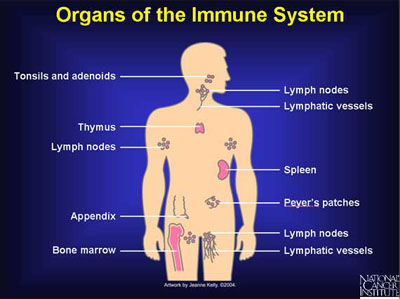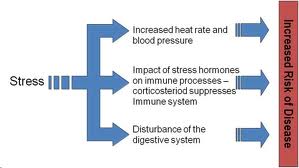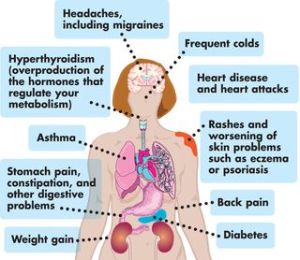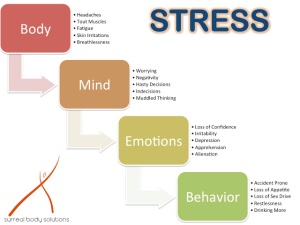 The immune system is a collection of billions of cells that travel through the bloodstream. They move in and out of tissues and organs, defending the body against foreign bodies (antigens), such as bacteria, viruses and cancerous cells.
The immune system is a collection of billions of cells that travel through the bloodstream. They move in and out of tissues and organs, defending the body against foreign bodies (antigens), such as bacteria, viruses and cancerous cells.
There are two types of lymphocytes:
B cells– produce antibodies which are released into the fluid surrounding the body’s cells to destroy the invading viruses and bacteria.
T cells – if the invader gets inside a cell, these (T cells) lock on to the infected cell, multiply and destroy it.
The main types of immune cells are white blood cells. There are two types of white blood cells – lymphocytes and phagocytes.
When we’re stressed, the immune system’s ability to fight off antigens is reduced. That is why we are more susceptible to infections.
The stress hormone corticosteroid can suppress the effectiveness of the immune system (e.g. lowers the number of lymphocytes).
Stress can also have an indirect effect on the immune system as a person may use unhealthy behavioral coping strategies to reduce their stress, such as drinking and smoking.
Stress is linked to: headaches; infectious illness (e.g. ‘flu); cardiovascular disease; diabetes, asthma and gastric ulcers.
Stress has three main direct effect on illness
Stress responses have an effect on digestive system. During stress digestion is inhibited. After stress digestive activity increases. This may affect the health of digestive system and cause ulcers. Adrenaline released during a stress response may also cause ulcers.
Stress responses increase strain upon circulatory system due to increased heart rate etc. Stress can also affect the immune system by raising blood pressure.
Hypertension (consistently raised blood pressure over several weeks) is a major risk factor in coronary heart disease (CHD) However, CHD may be caused by eating to o much salt, drinking too much coffee or alcohol.
Stress can also have an indirect effect on illness as it is associated with all manner of bad habits (coping strategies), for example smoking, drinking alcohol to excess, poor diet due to lack of time, lack of exercise for the same reason, lack of sleep etc.
All of these are likely to have an adverse effect on a person’s health so could cause some of the ill-effects attributed to stress.
Stress and Immune Function
Short term suppression of the immune system is not dangerous. However, chronic suppression leaves the body vulnerable to infection and disease.
A current example of this is AIDS– Acquired immune deficiency syndrome. Here the immune system is suppressed leaving the vulnerable to illness. Stress would just lead to frequent illness and infections.
Stress responses increase strain upon circulatory system due to increased heart rate etc. This may increase a person’s risk of developing disorders of the heart and circulation e.g. coronary heart disease (CHD). Individuals with type A personality have a greater risk of developing CHD.
Stress responses have an effect on digestive system. During stress digestion is inhibited. After stress digestive activity increases. This may affect the health of digestive system and cause gastric ulcers.
More information:
http://www.sciencedirect.com/science/article/pii/S1470204504015979
http://archinte.jamanetwork.com/article.aspx?articleid=617820



